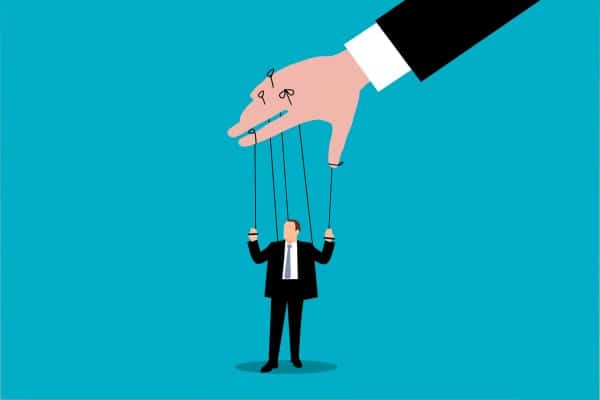This page contains affiliate links. This means if you a follow a link and make a purchase, at no additional cost to you, Humanitarian Careers will receive a commission. Thank you for supporting the site.
The United Nations is the most powerful and influential international organisation in the world. The objective of the UN is to work towards global peace and security by providing a forum where nations can resolve their disputes through dialogue.
The UN is supposed to be a neutral and impartial organisation. However, few feel the United Nations lives up to this ideal. The UN system is complex, some feel it lacks transparency. So, who really has influence at the UN, and which actors have control over it?
The UN Secretary General, General Assembly and Security Council have most of the control over the United Nations. These elements control much of the UN’s decisions and operations. However, the UN charter devolves power across many different bodies, and no one has ultimate control over the UN.
…but that’s just an overview. To fully understand who has control at the United Nations, we need to look further.
Who Has the Most Authority at The UN?
The first step in understanding who controls the United Nations is to look at where authority lies. The United Nations is not one single body, but a huge organisation made up of a number of different elements. Authority at the UN is not centralised but distributed between different parts. However, almost all the authority at the UN is located in the following four areas:
- UN Security General
- UN General Assembly
- Influential Member States
- Directors of UN Agencies
Let’s go over each of these…
UN Security General
The Security Council is the UN body tasked with maintaining global peace and security. It has five permanent member states – the US, UK, France, Russia, and China, as well as ten members that rotate each year. The permanent members of the UN Security Council hold veto rights over all it’s decisions. These countries have immense authority in the UN because of this.
UN General Assembly
The General Assembly is the main body of the United Nations where global affairs are discussed. Every member state of the UN sends a delegation to the General Assembly. The General Assembly has the authority to pass resolutions that can greatly affect worldwide public opinion. The UN General Assembly is one of the most authoritative parts of the UN.
Influential Member States
Sadly, not all member states of the UN are equal. Some countries have more influence over the organisation than others, either due to their size, military power, or effectiveness in international diplomacy.
Most of the highly influential member states are on the Security Council. However, states such as India, Brazil, Australia, and Canada are not permanent Security Council members but hold great authority within the UN.
Directors of UN Agencies
The United Nations runs 15 specialised agencies. These do a wide range of things – from helping refugees around the world to running development projects, from coordinating international aviation and maritime services to working towards more sustainable global tourism. The directors of these UN agencies have significant authority over how they operate.
Who Leads The United Nations?
Now that we understand the main areas of authority within the United Nations, in order to assess who has the most control, we next need to look at the official leadership of the UN. So, who is actually in charge of the United Nations?
The United Nations is led by the Secretary General. They are the most senior person within the UN. The Secretary General has oversight of the UN’s operations. The Secretary General is ultimately responsible for the effective running of the UN.
Essentially, the Secretary General has direct control over how the UN is ran. They have ultimate responsibility for the bureaucracy of the United Nations and act as a kind of CEO for the organisation. They have significant control over how the UN functions.
As well as having control over how the UN operates, the Secretary General also acts as a lead spokesperson for the UN. This gives them significant control over the messaging and campaigning the UN does, as well as which causes it champions. The Secretary General of the United Nations is a major global figure so their statements can affect world affairs.
Who Runs The UN?
As well as looking at who is officially in charge of the United Nations, to understand where power lies within the UN, and who controls it, we also need to look at how the UN is run. So, who actually runs the United Nations?
The United Nations is run by its staff. There are 44,000 members of staff working for the UN. Those who are employed by the United Nations are responsible for its day-to-day running. The most senior member of staff at the United Nations is the UN Secretary General.
The daily operations of the UN are carried out by its employees. The UN has offices in 193 countries around the world and people from every country in the world work for the United Nations.
There are hundreds of different departments, jobs, and operational functions across the United Nations. Each is responsible for running a specific area of the UN’s work. Essentially, the United Nations is run like any large organisation, with a set structures, managers, staff, and teams working to achieve set objectives.
The actual people who run the United Nations are the staff who work for it. This includes full time UN employees, external consultants, and UN volunteers.
United Nations Online Courses
If you want to learn more about the United Nations, and who controls it, we highly recommend the online course Global Diplomacy: The United Nations in the World offered by SOAS in London. We think it provides one of the best overviews of the UN and its role in the current global order. SOAS is also one of the top universities in the world for international relations and courses related to the UN. Follow the link to the course’s page.
The Sustainable Development Goals (SDG) underpin all of the UN’s work. In order to fully understand the United Nations, and who has control, you need a basic understanding of the SDG. We think the online short course The Sustainable Development Goals – A Global, Transdisciplinary Vision For The Future offered by the University of Copenhagen is one of the best introductions to the SDG. We’ve linked to the course page.
The University of Leiden in the Netherlands offers an online short course on The Changing Global Order. It includes a specific look at how shifting international power dynamics are affecting the current global system and the United Nations. For those wanting to understand the challenges the UN faces, this online course is a must. Click the link for more information.
Who Has Power in The United Nations?
Those who have control over the United Nations hold power within the organisation. As we have discussed, power within the United Nations is decentralized and there is no one person, country or body that has ultimate control over all of the UN. However, there are a number of different power bases within the UN. Three of the main ones are:
- Permanent Security Council members
- UN General Assembly
- UN Secretary General
Now, let’s look at each of these…
Permanent Security Council Member States
As we’ve discussed, the five permanent member states of the Security Council – the US, UK, France, Russia, and China have immense power within the United Nations. The Security Council is probably the most influential body within the UN. The permanent members each hold veto power which allows them to control what the Security Council can pass as resolutions. This probably gives them the post power over the UN.
UN General Assembly
The General Assembly also holds significant power within the UN. It has the ability to pass resolutions and is less controlled by just a few states than the Security Council is. The UN General Assembly holds significant power over international affairs and is one of the most influential bodies within the UN system.
Secretary General
The Secretary General also holds significant power in the UN. They are essentially the CEO of the United Nations and have control over the UN’s bureaucracy. Although still under heavy influence from member states, the Secretary General is the most powerful single person within the United Nations.
Does The United States Own The UN?
America perhaps has some of the biggest influence over the United Nations. It is the largest single donor to the UN, and the UN’s main headquarters is located in New York City in the US. All this begs the question, does the US actually own the United Nations?
The United States does not own the United Nations. Although the US has significant influence within the UN, and contributes the most funds to it, America does not control the UN. The UN is an independent organisation. America does not have authority over the United Nations.
Many people say the US has too much say over the United Nations. This may be true. However, the UN is a broadly democratic organisation and no one country, person or entity has complete control over it.
It would be incorrect to say the United States owns or controls the UN. The UN system is set-up so that power and authority is dispersed across many different entities. Although the United States, as the strongest country in the world and the largest UN donor, has a major input into how the UN operates, it does not own the UN.
If you want to learn more about the United Nations, and who has control, explore our list of the top UN online courses here.





